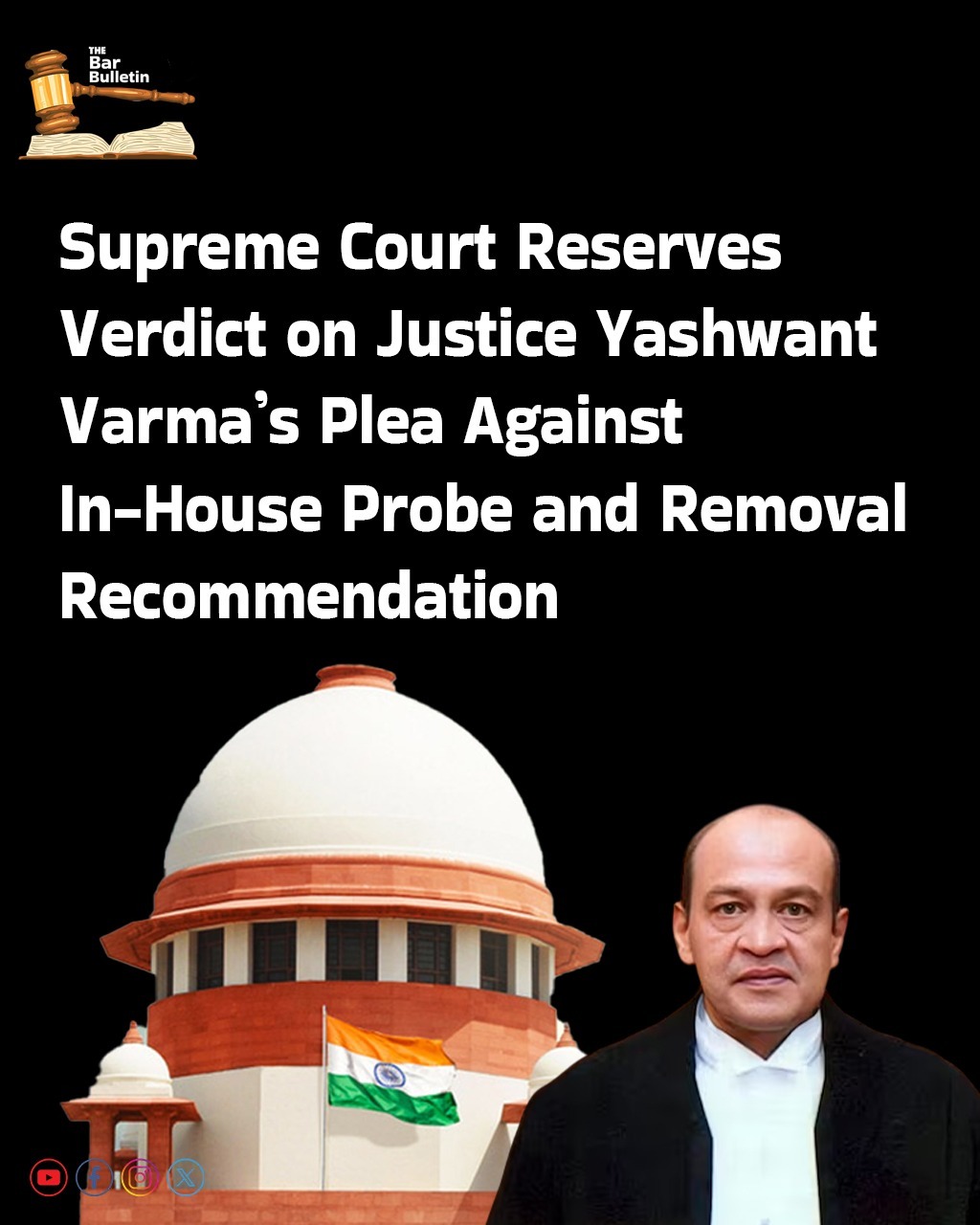On July 31, 2025, the Supreme Court Bench of Justices Dipankar Datta and A.G. Masih reserved its verdict in a high-stakes constitutional challenge filed by Justice Yashwant Varma, questioning the legality of the in-house inquiry report and the former Chief Justice of India’s recommendation for his removal in connection with the alleged cash-at-home scandal.
Senior Advocate Kapil Sibal, appearing for Justice Varma, argued that the in-house procedure lacked procedural safeguards, including cross-examination, and that the unauthorised public disclosure of tapes and findings had irreparably harmed his reputation. Sibal contended that the Chief Justice’s recommendation had the effect of pre-judging guilt, and that the process itself violated Article 21 protections.
Justice Datta underscored that the in-house mechanism, created under Article 141, was meant to fill the legal vacuum on judicial misconduct and was not equivalent to a formal judicial or impeachment process, but a fact-finding mechanism enabling the CJI to act as guardian of judicial integrity. The Bench also expressed strong reservations about the timing of the challenge, questioning why Justice Varma had not contested the process earlier.
The Court took exception to arguments by Advocate Mathews Nedumpara, who also appeared in the matter, directing him to clarify how he obtained access to the in-house report, and instructing him to file an affidavit.
Senior Advocate Mukul Rohatgi highlighted that while the in-house procedure may not explicitly require it, judicial practice, as seen in the Soumitra Sen case before the Calcutta High Court, involved the Chief Justice personally calling the judge concerned both prior to and after the submission of the inquiry report.
The Bench made clear that Parliament is not bound by the CJI’s recommendation, though such a report could trigger removal proceedings, and reiterated that the in-house committee’s findings were preliminary, not conclusive.
After hearing extensive submissions, the Court reserved judgment, refusing to permit any further oral arguments or late-stage constitutional challenges.



